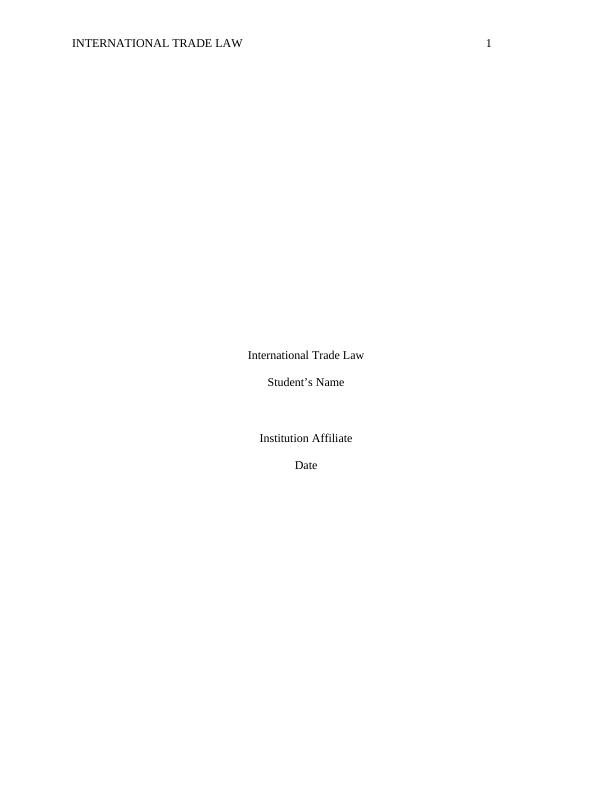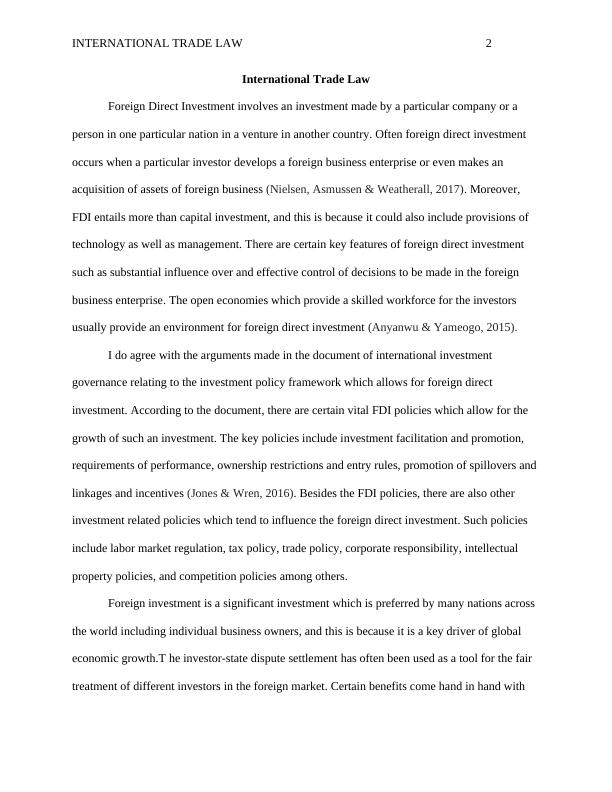Foreign Direct Investment and Investor-State Dispute Settlement
TransCanada Corporation & TransCanada PipeLines Limited Claimants, v. The Government of the United States of America Respondent.
5 Pages1104 Words258 Views
Added on 2023-04-23
About This Document
This document discusses the key features of foreign direct investment, policies that allow for its growth, and the benefits of the investor-state dispute settlement. It also highlights the importance of the global trading system in settling disputes related to foreign direct investment.
Foreign Direct Investment and Investor-State Dispute Settlement
TransCanada Corporation & TransCanada PipeLines Limited Claimants, v. The Government of the United States of America Respondent.
Added on 2023-04-23
ShareRelated Documents
End of preview
Want to access all the pages? Upload your documents or become a member.
Trade Policy of Australia
|10
|535
|56
Trade and International Business
|13
|2715
|84
Critical Analysis of Stakeholders Involvement in International Organisations
|4
|694
|299
International Business- Essay 3
|5
|1069
|214
Business Environment - Definition
|10
|2792
|19
Country Analysis and Evaluation of India for Foreign Direct Investment (FDI)
|16
|3727
|327


